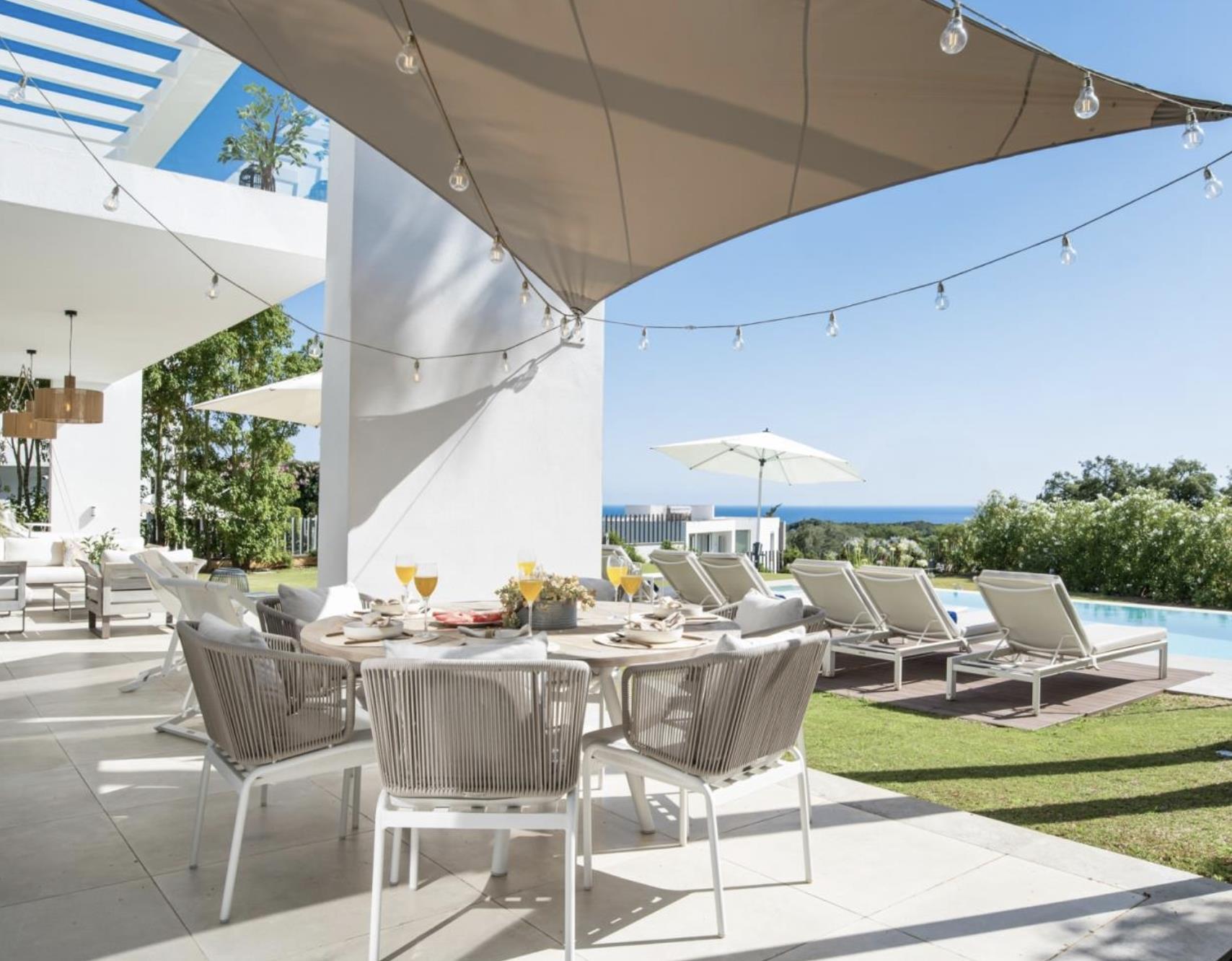Turning a luxury property into a vacation rental or long-term rental is one of the most profitable investment strategies in Marbella and the Costa del Sol. However, profitability doesn’t just depend on the nightly or monthly rate you set—it also relies on proper tax management and understanding which deductible expenses renting can be applied.
One of the issues that most concerns owners is how to declare their income and, above all, which expenses can legally be deducted when renting out a luxury property. Optimizing this aspect can make a significant difference in the final results. In this article, we explain in detail which expenses you can deduct, how to do it correctly, and what tax advantages exist for properties used for vacation or residential rentals.
What does it mean deductible expenses renting a luxury property?
When declaring rental income, the law allows you to subtract certain expenses necessary for generating that income. In other words, you don’t pay tax on the full amount received from tenants, but rather on the difference between income and expenses.
In the case of a luxury property, these expenses are often higher than in standard homes (due to size, quality, services, or maintenance). That’s why it’s essential for owners to know what can be deducted and how to justify it properly.

Main deductible expenses in luxury property rentals
Owners of luxury properties who rent them out can benefit from a range of tax deductions. Below are the main expenses allowed under current regulations, with practical examples to illustrate how they apply.
1. Mortgage interest and financing
If the luxury property was purchased with a mortgage, the loan interest is deductible. This applies to both mortgages for purchase and for renovations or improvements. Important: only the interest is deductible, not the principal repayment.
- Example: if the owner pays €2,000 per month on a mortgage and €800 of that corresponds to interest, that €800 is deductible.
2. Local taxes and municipal fees
Taxes directly affecting the property can be deducted, such as:
- IBI (Property Tax)
- Waste collection fees
- Community of owners’ fees
- Special contributions charged to the property
In luxury communities with exclusive services (24/7 security, landscaped gardens, heated pools, etc.), community fees are usually higher but are fully deductible.
3. Home insurance
The cost of home insurance (damage coverage, liability) or additional policies (art collections, jewelry, high-value installations) is tax-deductible. Having comprehensive insurance is essential in luxury homes, both to protect the property and to provide tenants with peace of mind.
4. Repairs and maintenance
All expenses aimed at keeping the property in top condition are deductible. These include:
- Painting
- Repairing high-end appliances
- Gardening and landscaping
- Private pool maintenance
- HVAC and smart home systems
- Cleaning and laundry services
Important: investments that increase the property’s value (e.g., full renovations, building a new room) are not immediately deductible—they fall under amortization.
5. Depreciation of the property and furnishings
The law allows a percentage of the property’s value and its furnishings to be deducted annually as depreciation:
- Property: up to 3% per year of either the acquisition cost or cadastral value (whichever is higher).
- Furniture and equipment: deduction proportional to useful life (sofas, TVs, beds, appliances, etc.).
In luxury homes, where furniture is often designer or high-end, this deduction is especially relevant.
6. Utilities and services
Expenses for water, electricity, gas, internet, or cable TV are deductible if paid by the owner. In luxury vacation rentals, these utilities are usually included in the rental price, so they can be fully declared as deductible.
7. Management and administration costs
If the owner hires a property management company like Banus Rentals, administration and management fees are deductible. This includes:
- Check-in and check-out services
- Guest support
- Property marketing and promotion
- Reservation management
- Property maintenance and supervision
This type of expense is increasingly common among luxury homeowners who want to professionalize their rentals and maximize profitability without complications.

Vacation rental vs. long-term rental
In Marbella, many luxury homeowners consider whether to rent their property to tourists or for long-term stays. Both models allow deductions, but there are differences:
- Vacation rentals: involve higher tenant turnover, more cleaning and service expenses, but generate higher income during peak season.
- Long-term rentals: provide stable income, reduced maintenance costs, and in some cases a 60% IRPF reduction on net rental income if rented as a tenant’s primary residence.
In both cases, deductible expenses are the same, though the fiscal strategy may differ.
How to justify deductible expenses
For the Tax Agency to accept deductions, it is essential to:
- Have invoices issued in the owner’s name (not tickets or third-party invoices).
- Prove that the expenses are directly related to the rental activity.
- Declare all rental income generated by the property.
Failure to comply may lead to penalties or loss of deductions.
Common mistakes owners should avoid
When declaring deductible expenses in the rental of a luxury property, it is common to make mistakes that reduce profitability or create issues with the Tax Office. Here are some of the most frequent errors that should be avoided.
- Confusing repairs with improvements: repainting or fixing a boiler is deductible; building a private spa is not (it must be amortized).
- Failing to declare periods without rental: deductions only apply proportionally to the time the property is rented.
- Mixing personal and rental expenses: expenses for personal use cannot be deducted.
- Not keeping original invoices or failing to declare them in the correct fiscal year.

Advantages of professional management for luxury homes
Hiring a specialized manager like Banus Rentals offers double benefits:
- Maximizing income through an optimized rental strategy.
- Optimizing tax deductions, ensuring that all eligible expenses are correctly applied.
Additionally, an agency provides added-value services such as multilingual guest support, premium maintenance, and international marketing—all essential for high-end properties.
Deductible expenses in the rental of a luxury property are numerous and represent a key opportunity to increase the real profitability of the investment. From mortgage interest to insurance, utilities or depreciation, all of them help reduce the taxable base and lower the amount of tax paid on holiday rentals.
For luxury homeowners in Marbella and the Costa del Sol—where international demand continues to grow—it is crucial to apply these deductions correctly.
At Banus Rentals, we guide property owners every step of the way: not only maximizing reservations and rental income but also ensuring their investment is managed efficiently and securely. Do you own a luxury property in Marbella and want to make it more profitable? Discover how Banus Rentals can manage your home to achieve maximum returns with the peace of mind of being in expert hands.